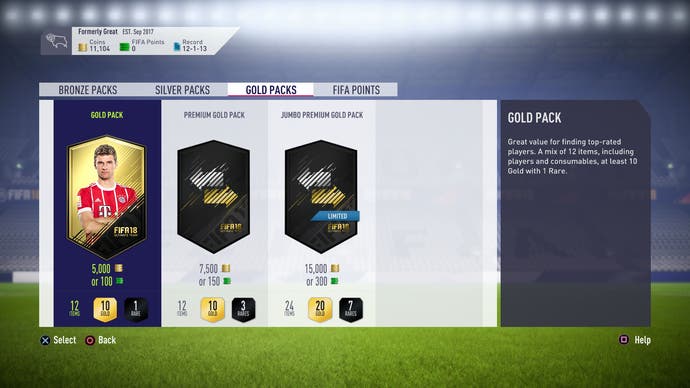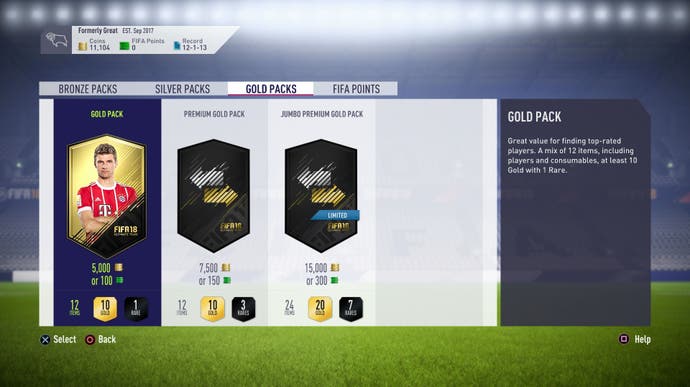Now Belgium declares loot boxes gambling and therefore illegal
Hazard warning.
Hot on the heels of the Netherlands declaring loot boxes are gambling and therefore illegal, Belgium has had its say.
The Belgian Gaming Commission looked at Star Wars Battlefront 2, FIFA 18, Overwatch and Counter-Strike: Global Offensive and found only Star Wars was not in violation of the country's gambling legislation - and that's only because EA stripped out the game's loot boxes after its launch debacle.
It determined FIFA 18, Overwatch and CS:GO's loot boxes are a game of chance and so are subject to Belgian gambling law. Battlefront 2, at the time the investigation was conducted, did not have loot boxes, so escapes unscathed.
A statement from Minister of Justice Koen Geens said FIFA 18, Overwatch and CS:GO were therefore illegal and demanded their loot boxes removed. If they're not, the publishers "risk a prison sentence of up to five years and a fine of up to 800,000 euros". When minors are involved, those punishments can be doubled, Geens added.
Belgium expressed a particular concern about the impact loot boxes have on young people. "It is often children who come into contact with such systems and we cannot allow that," Geens warned.
In fact, Geens requested the Belgian Gaming Commission investigated video game loot boxes after the Star Wars blow up. "Given the importance of the protection of minors and vulnerable players, this was very worrying," he said.

So, what happens next? Geens wants a dialogue with video game publishers and developers to work out who's responsible for the removal of the loot boxes. An EA spokesperson told Eurogamer the company "welcomes the dialogue" with Geens "as we do not agree that our games can be considered as any form of gambling". Here's the statement in full:
"We strongly believe that our games are developed and implemented ethically and lawfully around the world, and take these responsibilities very seriously. We care deeply that our players are having a fun and fair experience in all of our games, and take great care to ensure each game is marketed responsibly, including in compliance with regional ratings standards. We welcome the dialogue with Minister Geens on these topics, as we do not agree that our games can be considered as any form of gambling."
Whatever the outcome of these talks, it's clear Geens means business. "We have already taken numerous measures to protect both minors and adults against the influence of, among other things, gambling advertising," he said.
"That is why we must also ensure that children and adults are not confronted with games of chance when they are looking for fun in a video game."
This is yet another dramatic turn for the video game loot box issue, and a sign that in Europe at least, publishers may be forced to change the way their games work. Like with the Dutch situation, it'll be interesting to see whether publishers play ball with Belgium. But unlike the Dutch situation, Belgium has yet to impose a deadline by which publishers much change their games.
Meanwhile, the UK's Gambling Commission still doesn't think loot boxes are gambling or illegal in any way.

